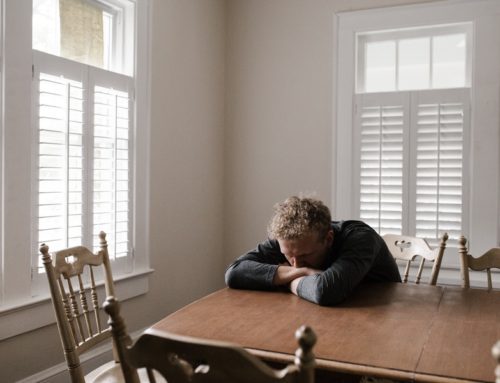Suicide is unfortunately common in the United States, with over 47,000 completed suicides every year and an estimate 1.4 million attempts year.[1] Talking with someone about any psychological disorder can be awkward. There are both implicit and explicit vulnerabilities at play and the issues are intensely private. Often people are caught off guard by the sudden deterioration of a friend or loved one and the suicide of someone dear is almost often shocking.
If you are worried that a friend or loved one is thinking about suicide, the best thing you can do is talk to them. Keeping quiet and hoping that things improve won’t help. Suicide is preventable and knowing what to say and do may make all the difference.
A lot of myths about suicide linger. Here are a few of them and the truths they obscure.
Myth: Suicide happens with no warning.
People who are suicidal often communicate their intentions, although not blatantly. They may talk about no longer “being around,” or behave more recklessly. People who are considering suicide may engage in dangerous behavior, abuse substances or otherwise act out of character. They may start giving away their possessions and start making disposition of their goods.
Myth: Asking a depressed person about suicide may provoke them into committing suicide.
This is a common myth that’s completely untrue. People who are suffering from depression or feeling at the end of their metaphorical rope often welcome an opportunity to share what they’re feeling. Asking about their feelings communicates care and concern, which is tremendously comforting. Always ask if the individual has a plan to harm themselves and discuss with them how you can help keep them safe.
Myth: You can’t stop someone from committing suicide.
While it’s true a person cannot be monitored around the clock every day for their entire life, suicide usually comes about as the result of a person reaching a crisis point that can be averted. Helping a person stay safe through this critical period can prevent suicide.
Myth: Suicidal people have undergone severe life setbacks or catastrophic personal losses.
People who look like they have it all sometimes kill themselves. It’s hard to know what’s going on with other people internally. When people talk about being better off dead, it’s important to listen.
Myth: Most suicides happen in winter.
Ironically, suicide is most common in the months of spring in the northern hemisphere and lowest in winter.[2] Depression robs a person of the energy necessary to take action. Once a little bit of psychological energy returns, depressed people are more likely to commit suicide.
Damaris Aragon, ARNP, BC provides a full spectrum of mental health care to people in Spokane, Washington and the surrounding areas. She focuses on providing compassionate personalized care that adheres to current evidence-based standards. Reach out to Damaris through her contact page or calling 509-342-6592.
[1] https://afsp.org/about-suicide/suicide-statistics/
[2] https://journals.sagepub.com/doi/10.2466/pms.100.3c.920-924






